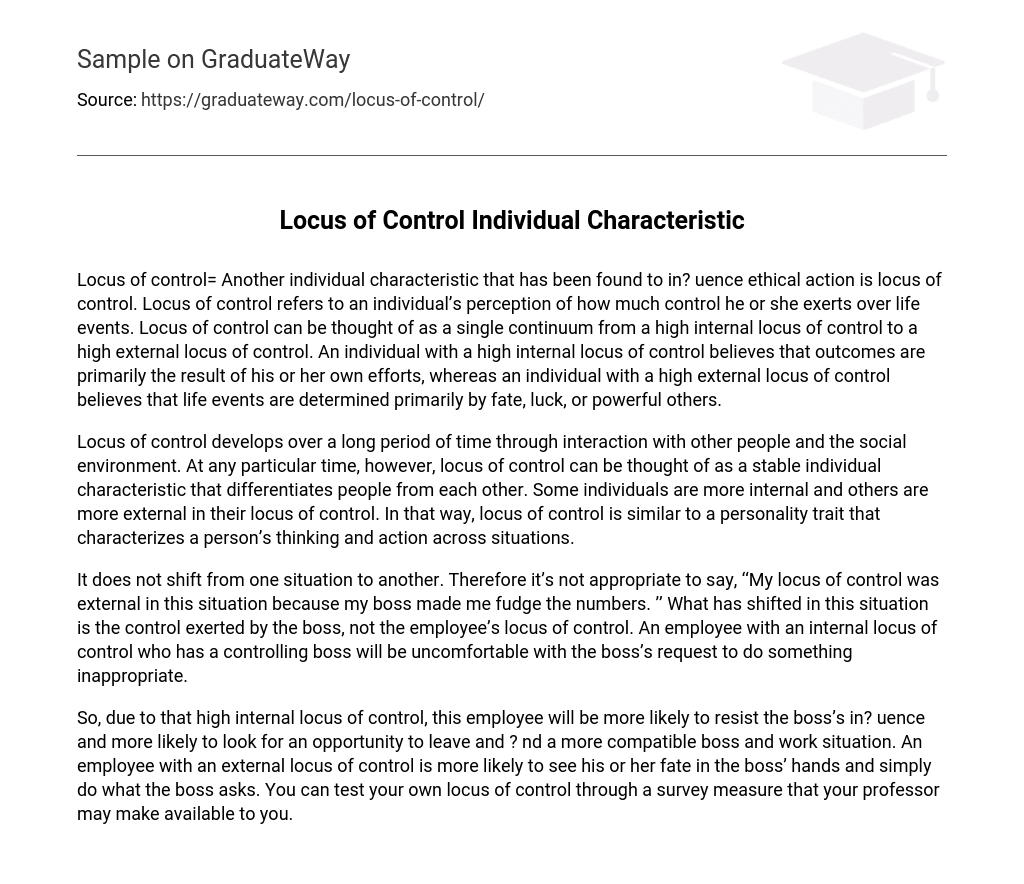Locus of control= Another individual characteristic that has been found to in? uence ethical action is locus of control. Locus of control refers to an individual’s perception of how much control he or she exerts over life events. Locus of control can be thought of as a single continuum from a high internal locus of control to a high external locus of control. An individual with a high internal locus of control believes that outcomes are primarily the result of his or her own efforts, whereas an individual with a high external locus of control believes that life events are determined primarily by fate, luck, or powerful others.
Locus of control develops over a long period of time through interaction with other people and the social environment. At any particular time, however, locus of control can be thought of as a stable individual characteristic that differentiates people from each other. Some individuals are more internal and others are more external in their locus of control. In that way, locus of control is similar to a personality trait that characterizes a person’s thinking and action across situations.
It does not shift from one situation to another. Therefore it’s not appropriate to say, ‘‘My locus of control was external in this situation because my boss made me fudge the numbers. ’’ What has shifted in this situation is the control exerted by the boss, not the employee’s locus of control. An employee with an internal locus of control who has a controlling boss will be uncomfortable with the boss’s request to do something inappropriate.
So, due to that high internal locus of control, this employee will be more likely to resist the boss’s in? uence and more likely to look for an opportunity to leave and ? nd a more compatible boss and work situation. An employee with an external locus of control is more likely to see his or her fate in the boss’ hands and simply do what the boss asks. You can test your own locus of control through a survey measure that your professor may make available to you.





